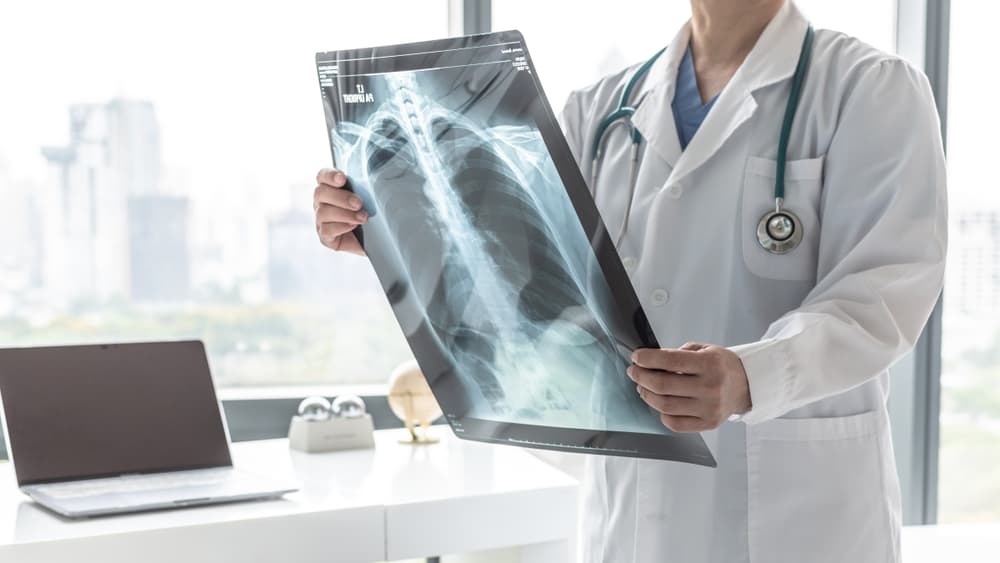
Imagine you are seeing an elderly patient who says he feels weak and appears short of breath. He has a rapid breathing rate and increased effort. He says he just gradually started not feeling well throughout the day. He denies any chest pain or cough. There is no history of COPD or other respiratory problems.
He denies taking any prescribed medications and has no allergies. There have been no changes in his life recently except he had started taking some aspirin for chronic arthritic pain in his knees which had been getting worse over the past few weeks.
His vital signs are within normal limits except for a respiratory rate of 28 and quality is deep and labored. O₂ saturation on room air is 100%.
His chest is clear and there is no edema.
So you ask yourself, What’s going on? Why is he breathing so fast when he doesn’t seem to have any other cardiorespiratory signs or symptoms? Are you feeling confused?
What makes us breathe? Chemoreceptors in the body recognize elevated CO₂ levels and make the respiratory system work harder to blow off this CO₂. Elevated CO₂ levels are associated with acidosis, which is damaging to the cells of the body. If untreated, it can lead to organ failure and death.
So this patient actually presented with Kussmaul breathing. Named after German physician Adolf Kussmaul (1822-1902), it is a pattern of deep, labored breathing associated with metabolic acidosis. In fact, you can use Dr. Kussmaul’s name (minus the u) as an acronym to remember the causes of metabolic acidosis. These are: Ketones (diabetic ketoacidosis), Uremia (kidney failure), Sepsis, Salicylates, Methanol, Aldehyde and Lactic acidosis.
I asked the patient for some clarification about how much aspirin he had been taking. Turns out it was a lot, especially for a 72-year-old man. He had been taking around sixteen 325mg tablets per day over the previous couple of weeks.
Aspirin overdose can occur in one massive dose or gradually over a period of days or weeks if taken in high doses chronically. Older people are more likely to be sensitive to the potentially damaging effects of aspirin on the kidneys. This gentleman had developed acute kidney failure. He subsequently ended up on peritoneal dialysis as his kidneys were permanently damaged.
He denies taking any prescribed medications and has no allergies. There have been no changes in his life recently except he had started taking some aspirin for chronic arthritic pain in his knees which had been getting worse over the past few weeks.
His vital signs are within normal limits except for a respiratory rate of 28 and quality is deep and labored. O₂ saturation on room air is 100%.
His chest is clear and there is no edema.
So you ask yourself, What’s going on? Why is he breathing so fast when he doesn’t seem to have any other cardiorespiratory signs or symptoms? Are you feeling confused?
What makes us breathe? Chemoreceptors in the body recognize elevated CO₂ levels and make the respiratory system work harder to blow off this CO₂. Elevated CO₂ levels are associated with acidosis, which is damaging to the cells of the body. If untreated, it can lead to organ failure and death.
So this patient actually presented with Kussmaul breathing. Named after German physician Adolf Kussmaul (1822-1902), it is a pattern of deep, labored breathing associated with metabolic acidosis. In fact, you can use Dr. Kussmaul’s name (minus the u) as an acronym to remember the causes of metabolic acidosis. These are: Ketones (diabetic ketoacidosis), Uremia (kidney failure), Sepsis, Salicylates, Methanol, Aldehyde and Lactic acidosis.
I asked the patient for some clarification about how much aspirin he had been taking. Turns out it was a lot, especially for a 72-year-old man. He had been taking around sixteen 325mg tablets per day over the previous couple of weeks.
Aspirin overdose can occur in one massive dose or gradually over a period of days or weeks if taken in high doses chronically. Older people are more likely to be sensitive to the potentially damaging effects of aspirin on the kidneys. This gentleman had developed acute kidney failure. He subsequently ended up on peritoneal dialysis as his kidneys were permanently damaged.

